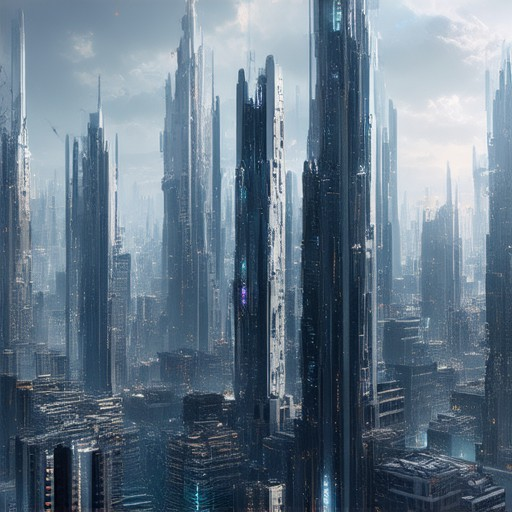Creating a video game is often hailed as a thrilling journey, but for many, it’s also a daunting task filled with unexpected hurdles. From technical snags to creative roadblocks, game development challenges can leave even the most determined creators stuck. Whether you’re a seasoned developer or just dipping your toes into the world of game creation, understanding the obstacles you may encounter is crucial to your success. In this article, we’ll delve into the common challenges faced by game developers, explore strategies to overcome them, and provide insights into how you can navigate the complexities of bringing your vision to life. Let’s uncover the obstacles that stand in the way of creating the next big thing in gaming.
Key Takeaways
- Balancing creativity with technical expertise leads to delays and budget overruns.
- The iterative nature of game development extends timelines and demands flexibility.
- Team collaboration and communication are critical for project success.
- Navigating ethical dilemmas while maintaining creative integrity.
- Staying ahead of gaming trends requires continuous innovation.
- Budget constraints limit funding options for indie developers.
- Negative player receptions can harm a game’s reputation.
- Creative ideas must align with market demand to stand out.
- Technical challenges involve optimizing complex systems across platforms.
- Time management and deadlines can lead to burnout and scope creep.
- Balancing cutting-edge technology with enjoyable gameplay is essential.
- Effective marketing is crucial for reaching target audiences.
- Meeting high player expectations for quality and updates is challenging.
- Strong leadership and clear communication are needed for team dynamics.
- The competitive gaming market demands unique selling propositions.
- Handling negative feedback impacts developer reputation.
- Adapting to evolving trends is necessary for market relevance.

What Are the Common Challenges Faced When Creating Games?
-
Creativity and Idea Generation
Coming up with unique and engaging game concepts can be a significant challenge. Indie developers often struggle with maintaining creativity while staying within budget and timeline constraints. One effective strategy is to engage in collaborative brainstorming sessions with team members to spark ideas and explore diverse gameplay mechanics.
-
Technical Difficulties
Game development requires a combination of technical skills, particularly in programming and graphics. Many indie developers face challenges with limited resources, leading to complex problems like optimizing rendering performance or implementing realistic physics engines. Tools like Unity and Unreal Engine can help mitigate these issues but require significant learning curves.
-
Team Collaboration and Communication
Creating a game often involves a multidisciplinary team, including designers, programmers, artists, and testers. Effective communication and coordination are essential to align everyone’s vision and progress. Using project management tools and regular meetings can help maintain workflow and ensure everyone is on the same page.
-
Budget Constraints
Indie game development often operates on tight budgets, which limits the ability to hire a large team or invest in high-end tools and equipment. Developers must prioritize tasks and use cost-effective solutions, such as free assets and open-source frameworks, to bring their projects to life.
-
Market Competition
The gaming market is highly competitive, with established titles dominating certain genres. Standing out often requires a unique twist or innovative gameplay mechanic. Researching the target audience and understanding their preferences can help identify gaps in the market and position your game effectively.
-
Balancing Gameplay and Story
Creating a cohesive and engaging experience requires careful consideration of both gameplay mechanics and narrative. Developers must ensure that the story enhances the gameplay without overshadowing it, often requiring iterative testing and refinement to find the right balance.
-
Platform and Distribution Challenges
Deciding which platforms to target can be tricky, as each has its own audience and requirements. Developers must consider factors like hardware compatibility, app store policies, and player demographics to maximize their game’s reach and visibility.
-
Staying Updated with Trends
The gaming landscape evolves rapidly, with new technologies and consumer expectations constantly emerging. Keeping up with trends, whether through attending industry events, subscribing to newsletters, or following influential figures, is crucial to remaining relevant and competitive.
To overcome these challenges, visit Indie Dev Games for resources, tutorials, and community support tailored for independent game developers.
Primary Obstacles Faced by Game Developers
Creating a successful video game involves navigating numerous challenges, each of which can significantly impact the development process. Here are the primary obstacles faced by game developers:
- Budget Constraints : Developing a game can be expensive, with costs ranging from hiring developers to purchasing software licenses. Many independent developers struggle with limited funding, often relying on crowdfunding or loans to finance their projects.
- Creative Direction : Determining the game’s vision, story, and mechanics requires creativity and teamwork. Disagreements between team members can lead to stalled projects or scope creep, where features become too ambitious for the available resources.
- Time Management : Game development is a complex process with tight deadlines, especially for projects with fixed release dates. Balancing design, programming, testing, and marketing can leave little room for error or iteration.
- Technical Challenges : Choosing the right technology stack, optimizing performance, and debugging issues are constant hurdles. Game engines, programming languages, and hardware compatibility can introduce unexpected problems that require significant time to resolve.
- Artistic Collaboration : Coordinating between artists, writers, and musicians can lead to creative conflicts or misaligned expectations, particularly when bringing together a diverse team of freelancers or external collaborators.
- Marketing and Distribution : Even successful games require effective marketing to reach their target audience. Securing distribution deals, designing a marketing strategy, and competing against established franchises can be daunting tasks for emerging developers.
- Balancing Gameplay and Story : Creating a cohesive narrative that complements gameplay mechanics is a fine art. Developers often face pressure to deliver both a compelling story and engaging gameplay, which can be challenging to achieve simultaneously.
- Legal and Regulatory Issues : Navigating copyright laws, intellectual property disputes, and platform policies can delay production and increase costs. Ensuring compliance with various regulations is a necessary but often overlooked aspect of game development.
- Feedback and Iteration : Receiving feedback from testers and focusing on iterative improvements can extend the development timeline. Balancing timely delivery with quality assurance is a delicate balance that many teams struggle with.
To overcome these challenges, many game developers turn to platforms like Indie Dev Games for resources, tutorials, and community support. By leveraging the right tools, collaborating effectively, and staying informed about industry trends, developers can navigate these obstacles and bring their creative visions to life.

Why Do Many Individuals Find It Challenging To Create Games?
Creating games involves a unique blend of creativity, technical skills, and project management. Many individuals encounter several obstacles when attempting to develop games, which can make the process daunting. Below are some key reasons why creating games is often challenging:
- Multidisciplinary Skills Requirement :
Game development demands proficiency in various fields, including art, programming, game mechanics, level design, and storytelling. A single person may excel in one area but struggle in others, leading to frustration and inefficiency. - Steep Learning Curve :
Modern game engines and development tools like Unity, Unreal Engine, and Godot require significant learning curves. Understanding physics engines, animation systems, and scripting languages can be overwhelming for newcomers without prior experience. - Time Constraints :
Developing a game is a time-intensive process. Creating polished, engaging titles often takes months or even years. Balancing this with personal responsibilities can lead to burnout and project abandonment. - Resource Limitations :
High-quality assets such as 3D models, textures, animations, and original music/sound effects are costly. Limited budgets or lack of access to professional tools can hinder progress, particularly for independent developers. - Creative Pressure :
Meeting player expectations and standing out in a crowded market can be stressful. Ensuring a game is fun, engaging, and visually appealing while staying within budget is a significant challenge. - Competition and Market Saturation :
With thousands of games available across various platforms, distinguishing oneself as a developer can be difficult. Navigating the competitive landscape and identifying the right audience requires market research and strategic planning.
To overcome these challenges, many turn to platforms like Indie Dev Games , which offer resources, tutorials, and community support tailored for aspiring and experienced indie developers. These platforms provide the necessary tools and guidance to streamline the game development process, making it more accessible and enjoyable for everyone.
By addressing these factors and leveraging available resources, individuals can navigate the complexities of game creation and bring their visions to life.

Unique Challenges Faced in Game Creation
Creating a video game is a multifaceted endeavor that combines artistic vision, technical expertise, and storytelling. While other forms of development may focus on a single discipline, game creation requires seamless integration of various elements, presenting unique challenges:
- Balancing Creativity and Technical Expertise : Game development demands both creative freedom for artists and designers and technical precision for programmers. The clash between these two disciplines can lead to misalignment, causing delays and budget overruns.
- The Iterative Nature of Development : Games are rarely created in a linear fashion. Prototyping, testing, and iterating are essential steps, which can extend the development timeline and require constant adaptability.
- Team Collaboration and Communication : A successful game project relies on strong teamwork among developers, designers, writers, and others. Miscommunication or conflicting visions can derail progress, making collaboration a significant challenge.
- Ethical and Moral Dilemmas : Decisions about content, characters, and narratives can raise ethical questions. Developers must navigate these issues while maintaining creative integrity and respecting player expectations.
- Staying Ahead of Trends : The gaming landscape evolves rapidly, with new technologies and consumer preferences emerging regularly. Keeping pace with these changes requires continuous learning and innovation.
- Budget Constraints : Many independent developers operate on limited budgets, forcing them to make tough choices between quality, features, and marketing. This financial pressure can lead to compromises that affect the final product.
- Negative Player Receptions : A game’s success depends heavily on its reception. Poor marketing, bugs, or unfavorable reviews can tarnish a game’s reputation, impacting both the developer and publisher.
These challenges highlight why game development is both an art and a science, requiring passion, resilience, and a willingness to embrace uncertainty. To learn more about overcoming these obstacles, explore our development resources and insights .
What Are the Unique Challenges Faced in Game Creation?
Creating a successful video game involves overcoming numerous unique challenges that span across creativity, technology, and business strategy. Below, we explore the key obstacles faced by developers and designers in bringing their visions to life.
- Creative Ideas vs. Market Demand
- Coming up with innovative gameplay mechanics that stand out in a crowded market can be incredibly challenging. With thousands of games released annually, developers must constantly push boundaries to create something unique and engaging.
- Understanding player preferences and trends is crucial. What works in one genre may not resonate with audiences in another, requiring developers to often pivot their ideas mid-project.
- Technical Hurdles
- Implementing complex systems like physics, graphics, and artificial intelligence requires significant technical expertise. Many developers struggle with optimizing performance, especially across multiple platforms and devices.
- Modern games demand high-quality visuals and smooth performance, which can be resource-intensive. Balancing visual fidelity with computational efficiency is a constant battle.
- Budget Constraints
- Developing a game is expensive, with costs ranging from tens of thousands to millions of dollars depending on scope and complexity. Small indie teams often face funding challenges, relying on crowdfunding, loans, or personal savings to get started.
- Making mistakes during development can be costly. Revisiting levels, mechanics, or art assets after initial production adds to the budget, delaying release dates and increasing stress levels.
- Balancing Fun and Cutting-Edge Technology
- There’s a fine line between pushing technological limits and overwhelming players with complexity. Developers must ensure that innovative features don’t come at the expense of playability and enjoyment.
- Iterative testing and feedback loops are essential. Without regular playtesting, developers risk releasing games that fail to meet their intended audience’s expectations.
- Time Management and Deadlines
- Game development is a time-sensitive process, with tight deadlines common in the industry. Meeting these deadlines while maintaining quality can lead to burnout among team members.
- Scope creep—where features grow beyond initial plans—can derail progress. Prioritizing features and managing expectations is a constant challenge for project managers.
These challenges highlight why game creation is one of the most demanding yet rewarding endeavors in the entertainment industry. By understanding and addressing these issues, developers can increase their chances of delivering memorable and successful gaming experiences.
For more insights into overcoming these challenges, visit our Indie Dev Games resource hub. Explore guides on development tools , design techniques , and marketing strategies tailored for indie game creators.

Most Common Challenges Faced by Game Creators
Creating a video game is a complex endeavor that involves numerous challenges, from technical development to creative vision. Here are some of the most common obstacles faced by game creators:
- Time Constraints: Game developers often face tight deadlines, especially for projects aimed at specific platforms or events. Balancing the creative aspects with the technical requirements can be overwhelming.
- Technical Limitations: While creativity drives the industry, it often has to coexist with the limitations of hardware and software. This balance can be tricky to strike effectively.
- Budget Issues: Development costs can be substantial, particularly for independent developers. Limited funding may force compromises in quality or scope, affecting the overall product.
- Marketing Challenges: Even a brilliant game can fail if it doesn’t resonate with players. Effective marketing strategies are essential for reaching the target audience and ensuring commercial success.
- Meeting Player Expectations: Players today demand high-quality experiences, including graphics, gameplay, and regular updates. Measuring up to these standards can be daunting for developers.
- Team Dynamics: Collaborating with a team requires strong communication and leadership. Misaligned goals or conflicts can derail a project, leading to delays or subpar results.
- Competition: The gaming market is highly competitive. Standing out among established titles while attracting new players can be a significant challenge for emerging developers.
- Handling Feedback: Negative reviews and criticism are inevitable, but how developers respond can impact their reputation. Addressing feedback gracefully is crucial for maintaining trust with fans and critics.
- Adapting to Trends: The gaming landscape evolves rapidly, with new technologies and consumer preferences emerging regularly. Keeping pace with these changes is essential for remaining relevant in the market.
These challenges highlight the complexities involved in creating a successful game. Despite the difficulties, many developers find fulfillment in overcoming these obstacles to bring their visions to life. By addressing these issues thoughtfully, game creators can navigate the industry’s unique demands and continue pushing the boundaries of what’s possible in gaming.




0 Comments